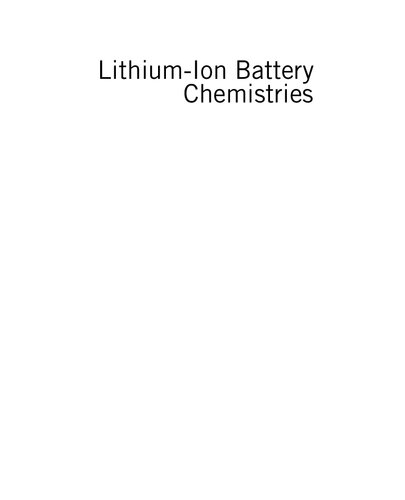

Most ebook files are in PDF format, so you can easily read them using various software such as Foxit Reader or directly on the Google Chrome browser.
Some ebook files are released by publishers in other formats such as .awz, .mobi, .epub, .fb2, etc. You may need to install specific software to read these formats on mobile/PC, such as Calibre.
Please read the tutorial at this link: https://ebookbell.com/faq
We offer FREE conversion to the popular formats you request; however, this may take some time. Therefore, right after payment, please email us, and we will try to provide the service as quickly as possible.
For some exceptional file formats or broken links (if any), please refrain from opening any disputes. Instead, email us first, and we will try to assist within a maximum of 6 hours.
EbookBell Team

4.4
42 reviewsLithium-Ion Battery Chemistries: A Primer offers a simple description on how different lithium-ion battery chemistries work, along with their differences. It includes a refresher on the basics of electrochemistry and thermodynamics, and an understanding of the fundamental processes that occur in the lithium-ion battery. Furthermore, it reviews each of the major chemistries that are in use today, including Lithium-Iron Phosphate (LFP), Lithium-Cobalt Oxide (LCO), Lithium Manganese Oxide (LMO), Lithium-Nickel Manganese Cobalt (NMC), Lithium-Nickel Cobalt Aluminium (NCA), and Lithium-Titanate Oxide (LTO) and outlines the different types of anodes, including carbon (graphite, hard carbon, soft carbon, graphene), silicon, and tin.
In addition, the book offers performance comparisons of different chemistries to help users select the right battery for the right application and provides explanations on why different chemistries have different performances and capabilities. Finally, it offers a brief look at emerging and beyond-lithium chemistries, including lithium-air, zinc-air, aluminum air, solid-state, lithium-sulfur, lithium-glass, and lithium-metal.